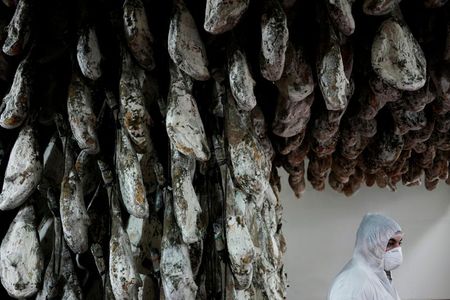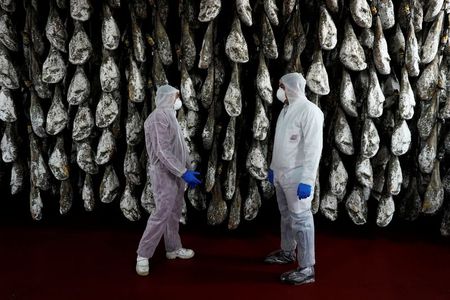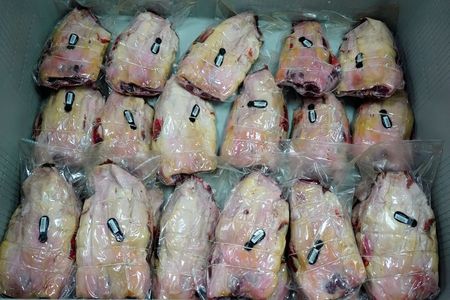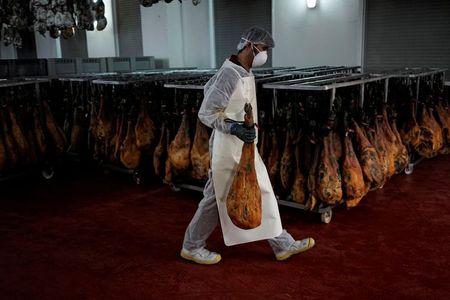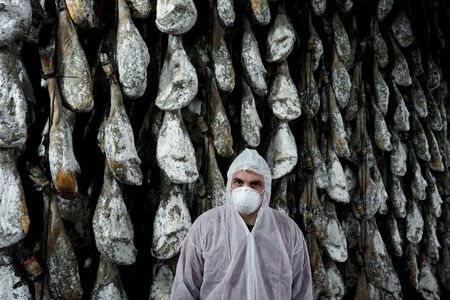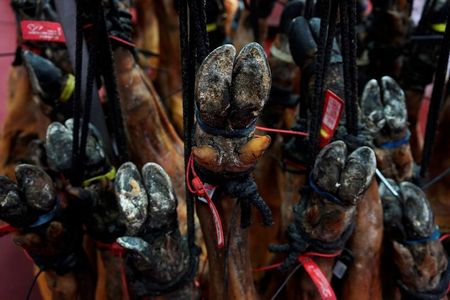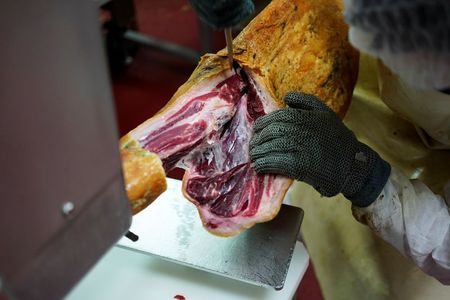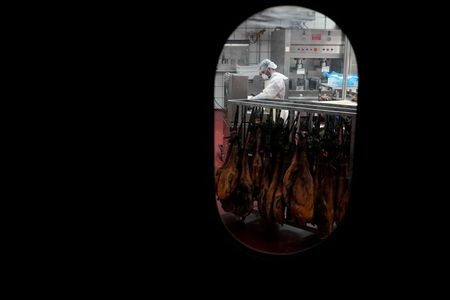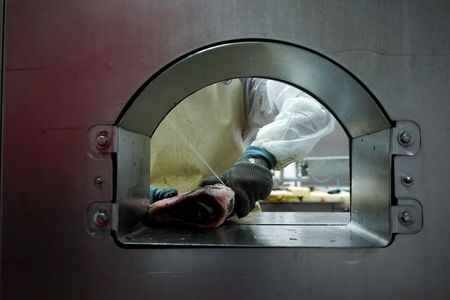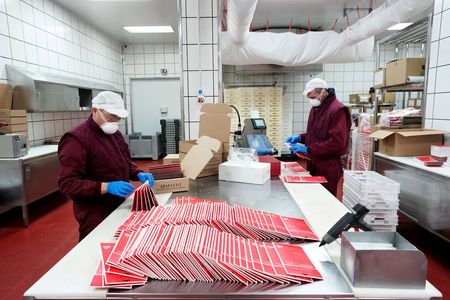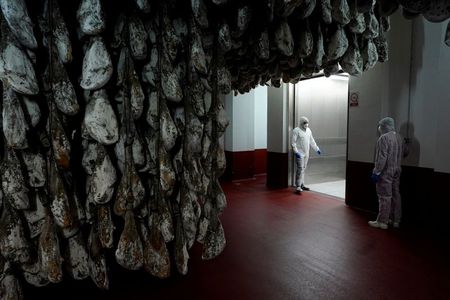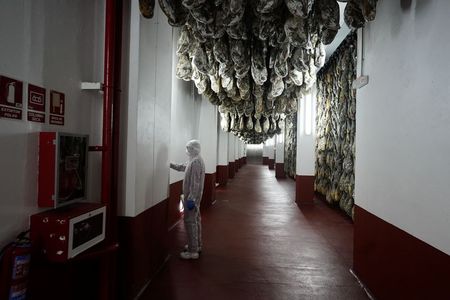By Clara-Laeila Laudette
MADRID (Reuters) – Having lived through animal-related influenzas like SARS and H1N1, Iberian ham producer Joselito was quick to enhance quality controls with tougher sanitary measures when the coronavirus hit.
But the near-total paralysis of its European exports, and the nationwide shutdown of its main client base – Spain’s restaurants, bars, and hotels – still came as a huge shock.
Now, the firm in Guijuelo, west of Madrid, has refocused the distribution strategy for its prime ‘pata negra’ ham on retail customers, and has ambitions to shape a debate on how COVID-19 might change the ways European societies meet and consume food.
“Eighty percent of our business is domestic,” said managing director Jose Gomez. “And of that, half are hotels and restaurants, (a sector) which has stopped completely.”
Since Spain went into lockdown on March 14, on-line orders for Joselito’s slices and legs of ham have trebled. In Madrid it has gone into partnership with home delivery app Glovo.
The lockdown cost Spain close to 1 million jobs in its first two weeks, but so far at least, Gomez has managed to avoid firing any staff.
For those tasked with salting, skinning and de-boning the ham it’s business as usual – or almost.
Even before the epidemic, staff in the processing plant wore gloves and masks, and disinfected themselves before handling ham.
Now, they are divided into teams with rotating shifts, also wear single-use decontamination suits and get their temperature checked.
Before the outbreak hit Europe, the fine ham company had launched its second tasting bar in Madrid, and hoped to open others worldwide.
But with the global food and restaurant sector in disarray and the future uncertain, Joselito is concerned about how the pandemic will impact people’s mindsets, and the Mediterranean way of life in particular.
“The worry I and many Mediterraneans have is that this fear makes us change our customs drastically,” Gomez said. “That the virus causes us to gradually lose our traditions.”
To stimulate dialogue and, the firm hopes, dispel this anxiety, it plans a series of podcasts examining the future of the food and restaurant sector.
“We want to speak with people from all over the industry and as many countries as possible, to see… where we’re headed,” Gomez said.
(Reporting and writing by Clara-Laeila Laudette; additional reporting by Elena Rodriguez and Michael Gore; editing by John Stonestreet)


